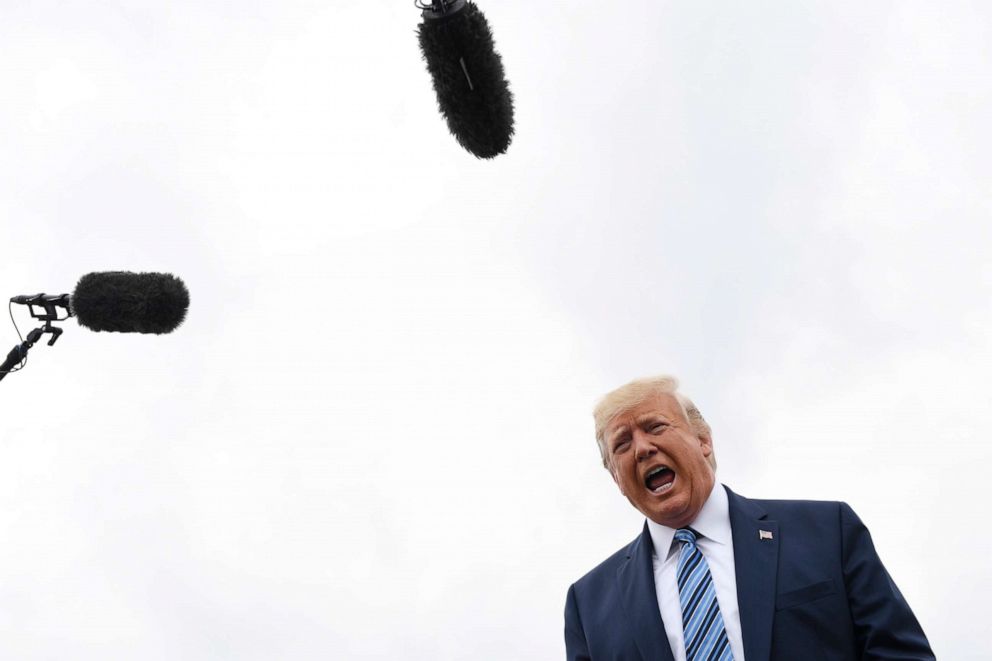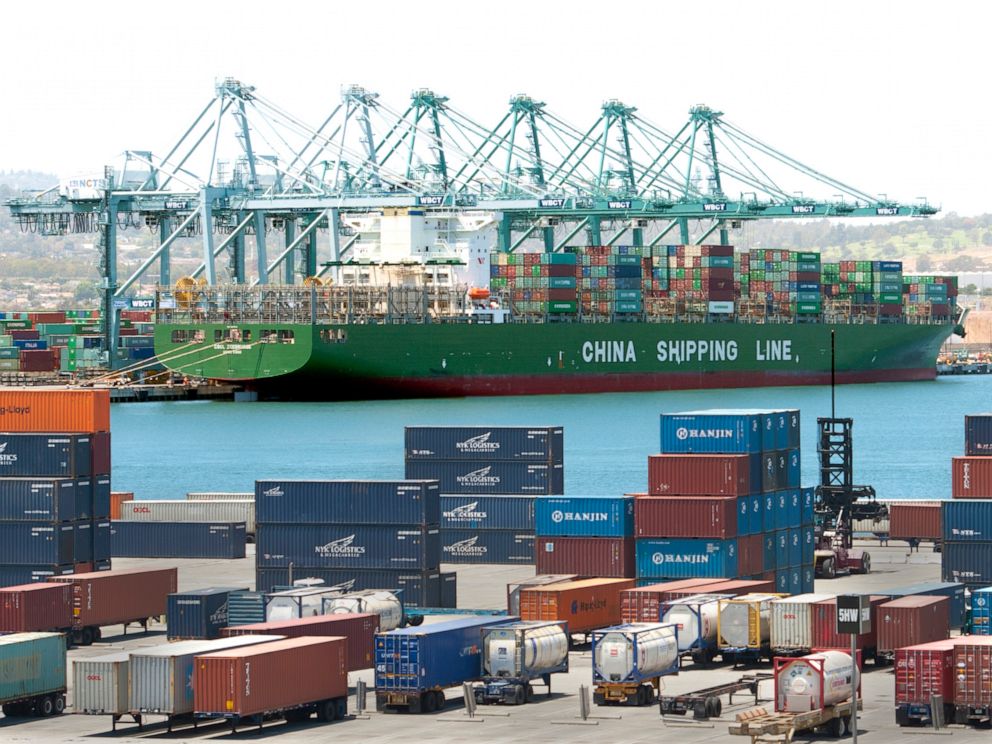When the US imposes tariffs on Chinese goods, who pays?
Usually, it's not the target country, an expert told ABC News.
In recent months, President Donald Trump has imposed tariffs on Chinese goods imported to the U.S.
In the president’s view, China has been taking advantage of the United States through the theft of intellectual property, forced transfers of American technology and taxes on agricultural exports.

"China has been taking advantage of the U.S. for so many years, that they are way ahead," Trump tweeted. “Therefore, China should not retaliate - will only get worse!"
By imposing tariffs on Chinese goods, Trump and the administration's Office of the United States Trade Representative has said the money will go directly from China into the coffers of the United States Treasury.
But, according to Dr. C. Fred Bergsten, founding director, senior fellow and director emeritus at the Peterson Institute for International Economics, the American consumer will be in charge of footing the bill instead of China.
American consumers may be paying an additional 10% on top of the original price on products like clothes, automobiles, cell phones, and toys.
"It’s about $30 billion of additional costs – so, that’s a lot of money,” he said.

President Trump announced a delay in implementing the 10% tariff until December 15, claiming to relieve costs on American consumers during the holidays.
“We are doing this for Christmas season. Just in case some of the tariffs would have an impact of US customers which, so far, they’ve had virtually none,” Trump said.
When a tariff is placed on goods, the company importing those products from a foreign country has to pay that added duty. The choice companies have to make is choosing between paying for the tariff themselves or passing that cost on to the consumer.
The size of the company and the cost of the import tax can influence that decision making process.
“Retailers still want to protect their customers against potential price increases that would come with any additional tariffs, but with the latest proposed tariffs on hold for now and warehouses bulging, there’s only so much they can do,” Jonathan Gold said, NRF vice president for supply chain and customs policy.

The stock market suffered two of the biggest drops of the year since Trump announced the new round of tariffs. On August 5, the Dow Jones Industrial Average lost more than 760 points after Trump accused China of manipulating their currency.
The worst drop of 2019 came on August 14 when the Dow plummeted 800 points. The escalating trade war with China sparked fear on Wall Street as well as growing recession concerns in the global economy.
This came a day after the Dow closed up 373 points, responding to news that the U.S. Trade Representative announced the delay in the additional 10% import tax until mid December.
ABC’s Ben Siu, Karen Travers, Sophie Tatum, and Rebecca Jarvis contributed to this report.




